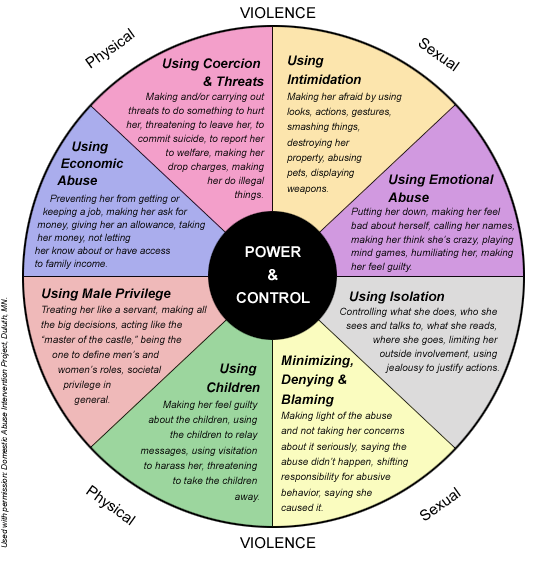If you would like to support a friend or family member experiencing domestic violence
If you know or suspect that a family member, friend or work colleague is experiencing domestic violence, it may be difficult to know what to do. It can be very upsetting that someone is hurting a person you care about. Your first instinct may be to want to protect your friend or family member but intervening can be dangerous for both you and her. Of course, this does not mean you should ignore it. There are things you can do to help make her and any children safer. If you should witness an assault, you can call the police on 999.
It is helpful to remember that:
- Domestic violence is a crime – it is unacceptable
- Specialist Domestic Violence Courts now operate in 25 courts with a conviction rate of over 70% (CPS survey 2006)
- Domestic violence is very common. One woman in four experiences domestic violence at some point in her life and an abused woman may live with domestic violence for years before she tells anyone or seeks help
- Domestic violence is very dangerous
- All women have the right to live without fear of violence and abuse
- The abuser is solely responsible for his abusive behaviour. The woman is not to blame; violence is a choice he makes
What might an abused woman be feeling and experiencing?
- An abused women is often overwhelmed by fear, which can govern her every move – a fear of: further violence, the unknown, her safety and the safety of her children – do not underestimate the effects of fear
- She often believes that she is at fault and that by changing her behaviour the abuse will stop. Research shows that this is not the case
- She may experience a conflict of emotions. She may love her partner, but hate the violence. She may live in hope that his good side will reappear
- She may be dependent upon her partner, emotionally and financially
- She may experience feelings of shame, guilt and embarrassment
- She may feel resigned and hopeless and find it hard to make decisions about her future
So what can you do to support her ?
- Talk to her and help her to open up. You may have to try several times before she will confide in you
- Try to be direct and start by saying something like, “I’m worried about you because …..” or “I’m concerned about your safety…”
- Do not judge her
- Listen to and believe what she tells you – too often people do not believe a woman when she first discloses abuse
- Reassure her that the abuse is not her fault and that you are there for her
- Don’t tell her to leave or criticise her for staying. Although you may want her to leave, she has to make that decision in her own time. It is important to remember that research shows an abused woman is at most risk at the point of separation and immediately after leaving an abusive partner
- Leaving takes a great deal of strength and courage. An abused woman often faces huge obstacles such as nowhere to go, no money and no-one to turn to for support
- Focus on supporting her and building her self confidence
- Acknowledge her strengths and frequently remind her that she is coping well with a challenging and stressful situation
- An abused woman is often very isolated and has no meaningful support – help her to develop or to keep up her outside contacts. This can help to boost her self esteem.
- If she has not spoken to anyone else, encourage her to seek the help of a local domestic violence agency that understands what she is going through and offers specialist support and advice
- Be patient. It can take time for a woman to recognise she is being abused and even longer to take be able to take safe and permanent decisions about what to do. Recognising the problem is an important first step
Helping a woman and her children to keep safe
- A woman’s safety and the safety of her children is paramount
- Talk to her about how she and her children can keep safe
- Help her to stay safe:
- Agree a code word or action that is only known to you both so she can signal when she is in danger and cannot access help herself
- Don’t make plans for her yourself, but encourage her to think about her safety more closely and focus on her own needs rather than his
- Find out information about local services for her; offer to keep spare sets of keys or important documents, such as passports, benefit books, in a safe place for her so that she can access them quickly in an emergency
- Encourage her to think of ways in which she can increase the safety of her children
- Remember that it isn’t children’s responsibility to protect their mother. In an emergency they could call for help from the police, go to a neighbour, or a relative or someone they trust.
nationaldomesticviolencehelpline.org

